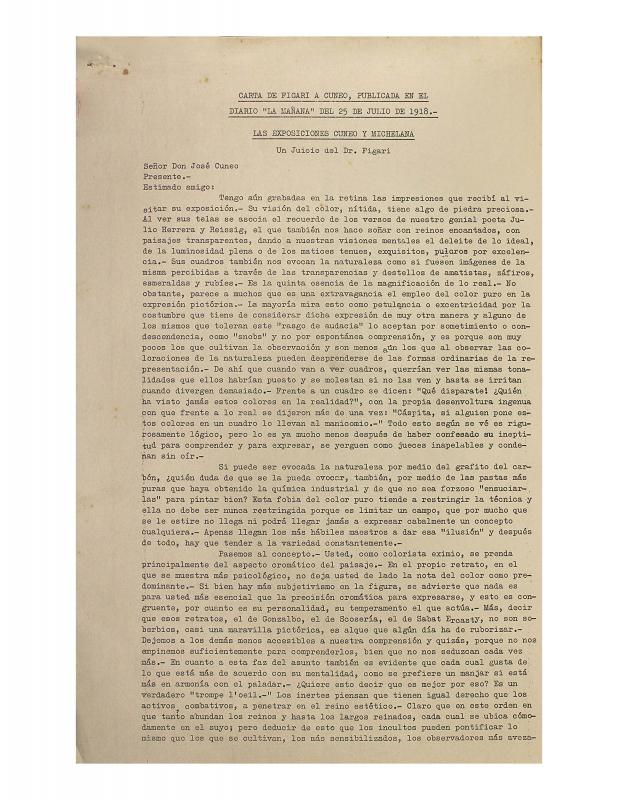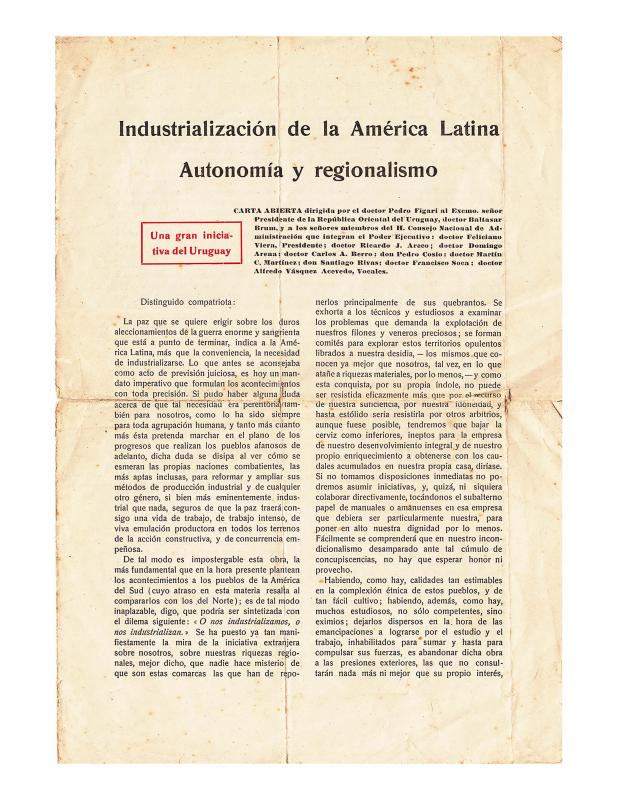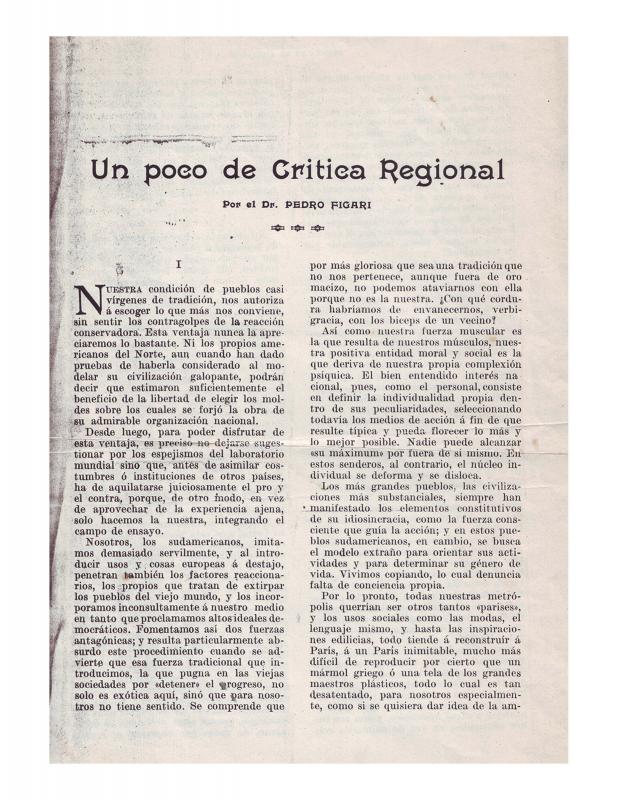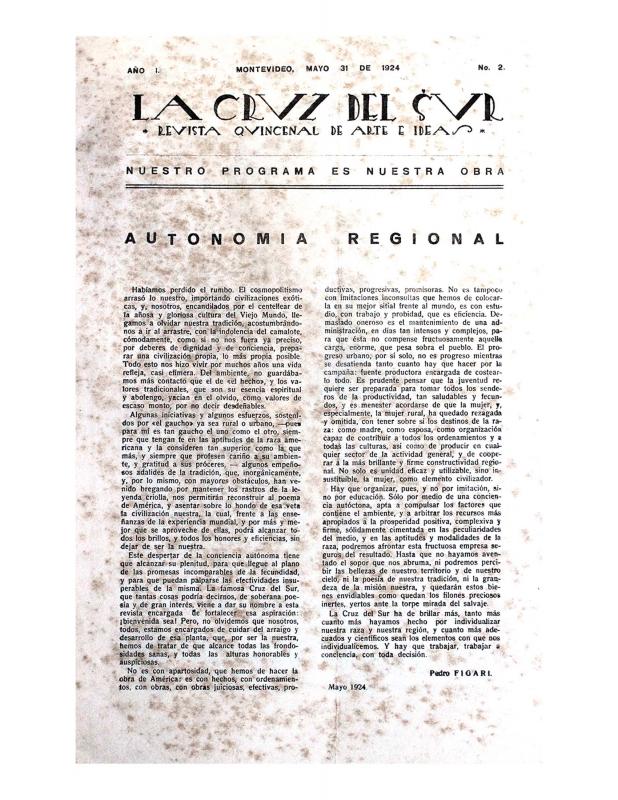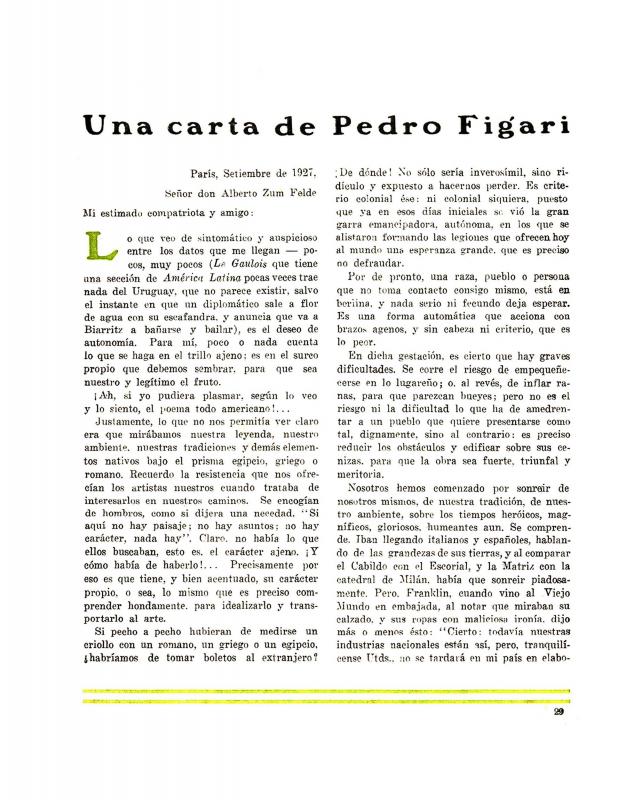In the 1920s Pedro Figari’s paintings were largely reviled by the political class and by a type of journalistic criticism that had not yet attained a professional level. In fact, the subject matter in Figari’s paintings that sought to rehabilitate cultural aspects of the traditions of the Río de la Plata region was generally dismissed as an absurd cartoon by politicians who understood the national tradition in epic and solemn, if not covertly European, terms. Not a single member of the political class saw fit to acquire any of Figari’s works on behalf of the State at that time, despite being asked to do so. Gervasio Guillot Muñoz and his brother Álvaro had published an important book on two Franco-Uruguayan poets, Jules Laforgue and Isidore Ducasse, Count of Lautréamont in France, whom he had met in the original surrealist group. In 1924 Guillot Muñoz co-founded the magazine Cruz del Sur in Montevideo. Published continuously until 1931, it was one of several cultural magazines with a literary slant that appeared in the 1920s, such as La Pluma, Cartel, Alfar, and others.
Contributors to Cruz del Sur magazine supported what was known as “nativism,” which was not a simple reintroduction of local agrarian traditions but a reformulation of urban culture expressed through a prism of those traditions and contemporary cosmopolitanism. Hence Figari’s painting became a sort of bridge between European culture and the essential characteristics of nativist art.
Pedro Figari (1861–1938) was active in several different areas, as a philosopher, journalist, educator, lawyer, politician, and artist. He worked for the development of a universal humanism that included, and was based on, an empathetic knowledge of the cultural heritage of the region that was expressed in the local traditions, nature, and society.
[As complementary reading see, in the ICAA digital archive, the following articles by the Uruguayan polymath: “Las exposiciones Cuneo y Michelena [Un juicio de Pedro Figari]” (doc. no. 1233819); “Industrialización de la América Latina, Autonomía y Regionalismo: Carta abierta dirigida por el Dr. Pedro Figari al Excmo. señor Presidente de la República Oriental del Uruguay” (doc. no. 1181222); “Un poco de crítica regional” (doc. no. 1258164); “América Autónoma: no basta instruir, hay que enseñar a trabajar” (doc. no. 795325); “Arte, técnica, crítica. Conferencia bajo el patrocinio de la Asociación Politécnica del Uruguay” (doc. no. 1263840); “Autonomía Regional” (doc. no. 1254337); and “Una carta de Pedro Figari” (doc. no. 1197040)].

